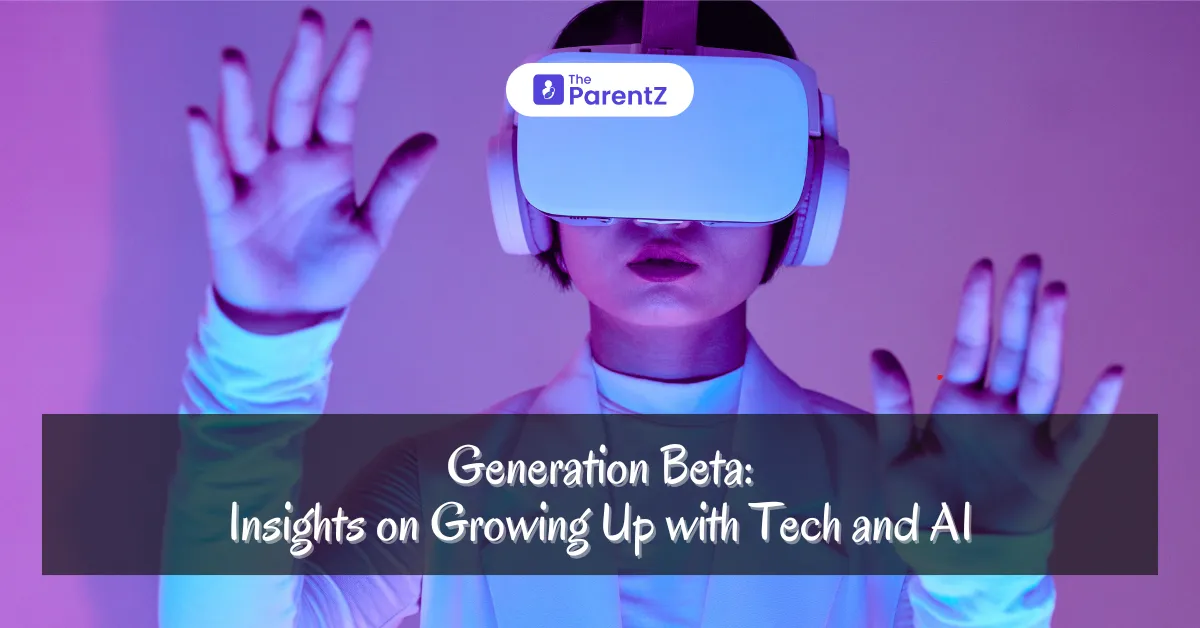As we enter the mid-2020s, a new generation has made its debut: Generation Beta. These kids, born from 2025 onward, will grow up in a world that’s pretty mind-blowing compared to what we know. Imagine children who won’t just use technology—they’ll live and breathe it. With AI assistants, virtual reality classrooms, and smart devices all around them, it’s fascinating to think about how this tech-filled environment will shape their lives. So, what do psychologists have to say about this upcoming generation?
Who Are Generation Beta?
Generation Beta follows Generation Alpha (those born between 2010 and 2024). While Gen Alpha is already glued to tablets and smartphones, Generation Beta will take this immersion to a whole new level. These kids might never know a world without AI or virtual reality! It’s hard to imagine how different their experiences will be compared to ours.
Digital Natives in the Making
Psychologists believe that Generation Beta will be true digital natives. They’ll grow up with technology at their fingertips, making them incredibly adaptable and tech-savvy. But there’s a flip side: this constant access to information can create a culture of instant gratification. Kids might find it tough to focus on tasks that require patience and hard work.
Emotional Intelligence in a Tech World
One of the most interesting things about growing up in such a tech-centric environment is how it affects emotional intelligence. Kids from Generation Beta will likely connect with peers from all over the globe through social media and online games. This could help them develop empathy and inclusivity. However, there’s a catch: they might struggle with face-to-face interactions because they’re so used to communicating through screens.
Sonal Khangarot, a psychologist, points out that while these kids may be more empathetic online, they’ll need to learn how to manage their emotions in real life, too. Balancing feelings across both digital and physical spaces will be super important for their well-being.
A New Kind of Education
When it comes to education, Generation Beta is set for some big changes. We’re talking about personalized learning experiences powered by AI and virtual reality. Picture classrooms where lessons are tailored just for each child—how cool is that? It could make learning way more engaging.
But there’s a downside, too. As kids rely more on technology for learning, they might miss out on developing essential skills like teamwork and problem-solving that come from traditional classroom settings.
Mental Health Matters
With all the perks of technology come some serious mental health concerns. Spending too much time online often leads to anxiety, depression, and feelings of isolation. Khangarot warns that kids might struggle with self-esteem issues fueled by social media comparisons.
This brings us to the topic of digital dependence—a growing concern highlighted in the blog "Digital Dependence: The Health Risks of Technology Addiction in Kids." As children increasingly turn to screens for entertainment and social interaction, they may face significant risks related to mental health and emotional well-being.
To help combat these challenges, psychologists stress the importance of teaching mindfulness and emotional resilience early on. Setting healthy boundaries around screen time will be crucial for helping these kids maintain a balanced relationship with technology.
Cultural Shifts Ahead
Generation Beta is likely to embrace values that prioritize inclusivity and caring for the planet. Growing up during global crises like climate change may instill a sense of responsibility in them from an early age. This awareness could lead to a generation that’s not only innovative but also deeply committed to making positive changes in the world.
However, this shift in values might create some tension with older generations who hold onto traditional ways of thinking. Open communication will be key in bridging these gaps and fostering understanding across age groups.
Impact on Parent-Child Attachment
Another critical aspect worth considering is how technology affects parent-child relationships. In "The Impact of Technology on Parent-Child Attachment," experts discuss how increased screen time can sometimes interfere with bonding moments between parents and children. As parents juggle their own digital lives alongside parenting responsibilities, it’s essential for families to find ways to connect meaningfully without screens getting in the way.
Preparing for Tomorrow
As we look forward to welcoming Generation Beta into our lives, it’s essential for parents, educators, and society as a whole to prepare for their unique needs. This means creating environments that promote both tech skills and emotional growth. Encouraging curiosity while teaching critical thinking will help them navigate the complexities of modern life.
Also, fostering resilience through coping strategies will be vital in helping them deal with the pressures they’ll face. By nurturing both their emotional intelligence and digital skills, we can empower Generation Beta to thrive in an ever-changing world.
Conclusion
Generation Beta is poised to bring some exciting changes into our lives. With their blend of tech-savviness and emotional intelligence shaped by a rapidly evolving world, they have the potential to bring innovation and positive change like never before. But let’s not forget about the mental health challenges they might face along the way.
As we prepare for this new generation, let’s remember that while technology does enhance our lives in countless ways, nurturing their emotional well-being is just as important. By fostering resilience and compassion alongside digital literacy, we can help Generation Beta become not just successful individuals but also caring stewards of our planet.





Be the first one to comment on this story.